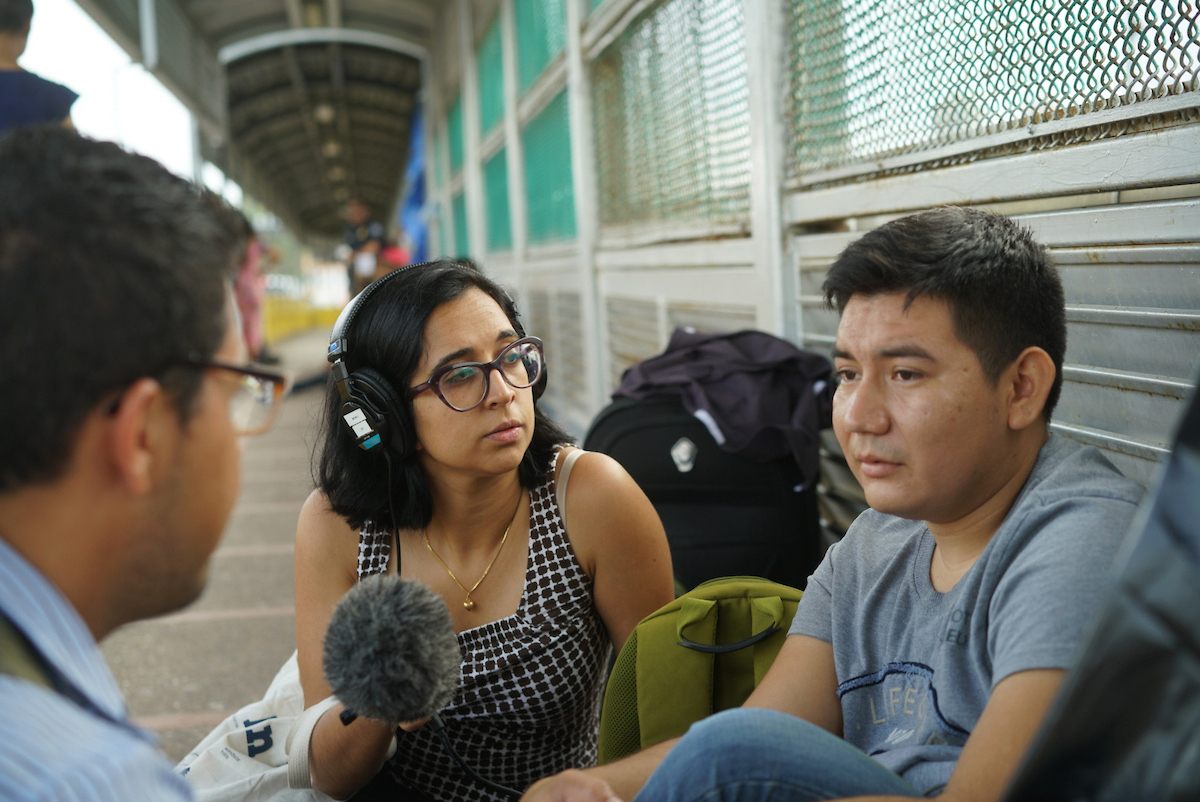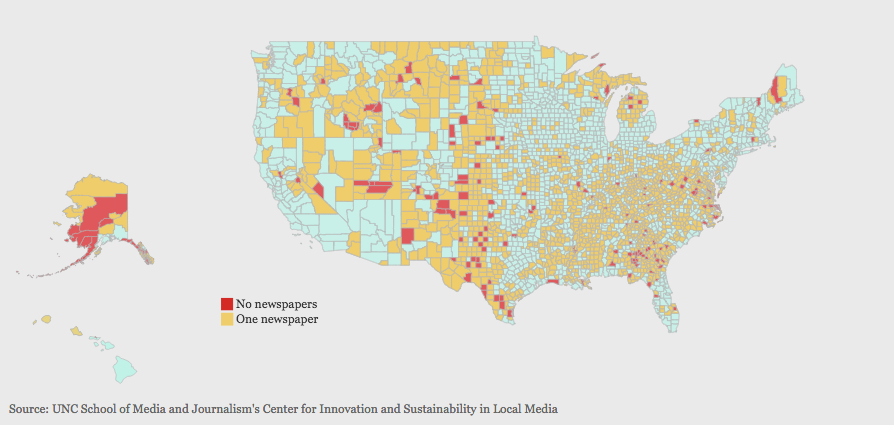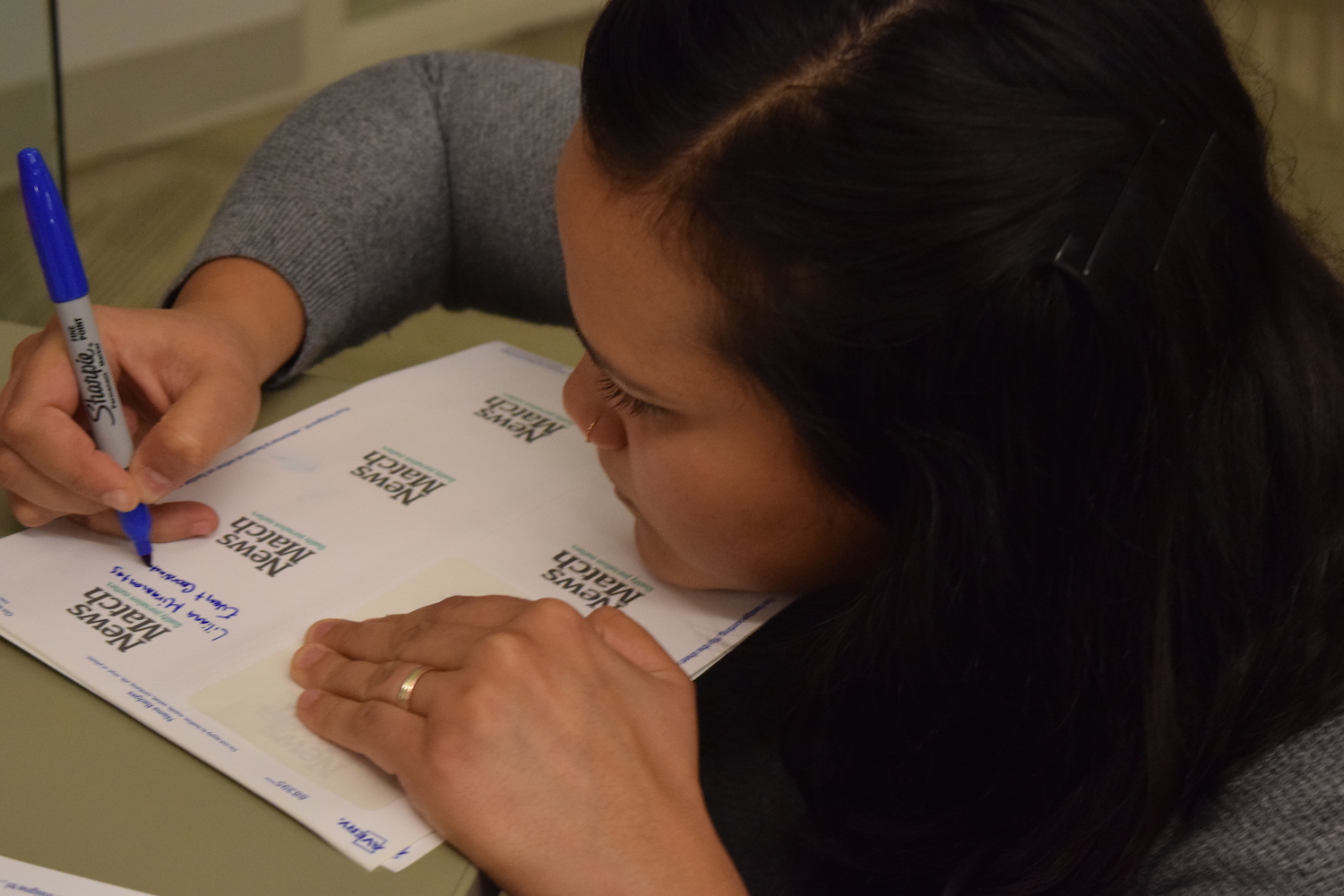
Knight Foundation’s investment in media seeks to preserve an essential element of democracy: an informed citizenry
This op-ed originally appeared in The Miami Herald and McClatchy newspapers nationwide on February 19, 2019. Reprinted with the permission of the Miami Herald.
After a gunman opened fire at The Capital Gazette newsroom in Annapolis, Maryland last year, cable news pundits rushed to determine the paper’s political bent. The answer, they discovered, is that the Capital wasn’t a liberal paper or a conservative paper. It was a local paper.
It still is.
It’s where readers learn what’s happening in their backyards and get the news and information they need to be engaged citizens. Local news — whether broadcast, print or online — is where people most trust the news they consume.
Local news is the foundation of American democracy. But it’s in crisis. Internet platforms have decimated their business model. The past 15 years have been marked by layoffs and shutdowns, leaving swaths of the country without a broad and common baseline of shared information. When there is no agreement on fundamental facts, misinformation and disinformation proliferates, coursing through social media and search platforms, further eroding our trust in media and in each other.
Having spent most of my adult life fighting for journalism and its essential role in our democracy, this is deeply troubling. But I’ve been feeling a different emotion lately: optimism.
Part of my optimism stems from history, and the knowledge that we’ve overcome worse. For a hundred years after the invention of the printing press, the public had trouble figuring out what was true and how to handle the speed and volume of information. We’re living just that kind of Gutenberg moment. Internet has transformed what we know — or think we know — how we learn it, and how quickly and how much we take in.
The solution isn’t nostalgia for the way we were. Our task is not to stem the decline of print or broadcast news, but to preserve an essential element of our democracy: an informed citizenry. And the best way to do that is to help local news organizations survive and prosper in the digital era.
Knight Foundation has spent a decade exploring different approaches to helping local news adapt. We have a sense of what works.
Armed with that knowledge, we are investing $300 million over the next five yearsin reimagining local news, funding tested solutions, experiments and basic research. Michael Posner’s recent call for a “Marshall Plan for journalism” evokes the scale of the effort, not by government but by we, the people.
We’re funding organizations that support local journalism from every angle, helping them develop sustainable digital business models, defending reporters in court, engaging with their communities, improving media literacy and placing reporters in news operations that need more staff.
The goal is to reinvigorate local news as the staging ground for the middle, a place where common facts are the common prize. And in doing so, to help rebuild trust in media and strengthen our democracy.
Of course, the decimation of local news isn’t the only challenge we face. The business of media has been transformed by the internet, but it’s still governed by laws and regulations largely written for another time. No one really knows where a review of anti-trust, privacy, libel and product liability laws and regulations might lead. What does seem clear from recent hearings is that Congress — the sleeping giant — has awakened and intends to do something about the massive and largely unchecked power of tech companies.
As these threads play out, it’s essential that news organizations both mind their knitting and continue to experiment to find business models that sustain the regular delivery of reliable information. Some of that will happen at the national level. Much of it, and the part for which I have the most hope, is at the local level, where the distance between journalist and reader, viewer, listener or tweeter, is shortest.
While news in most of the world has been state-controlled or influenced, and publications have been national in scope, the United States was different. Our size as a country, our revolutionary history and independent bent, and our diversity of regions and peoples, led us to develop a tapestry of local news operations that brilliantly described our towns and neighborhoods. The essence of American journalism has long been local — and we need to return to first principles.
The moment has come for us to rebuild this fundamental part of our democracy. Supporting local news is not a commitment we can make once; it’s one we must make over and over again. And it’s one all of us — citizens and consumers, philanthropists and journalists — must make together.
Alberto Ibargüen is president and CEO of the John S. and James L. Knight Foundation in Miami. He is the former publisher of the Miami Herald and El Nuevo Herald.
-
Journalism / Press Release
-
Journalism / Article
-
Journalism / Press Release
-
Journalism / Article
-
Journalism / Article
Recent Content
-
Journalismarticle ·
-
Journalismarticle ·
-
Journalismarticle ·







